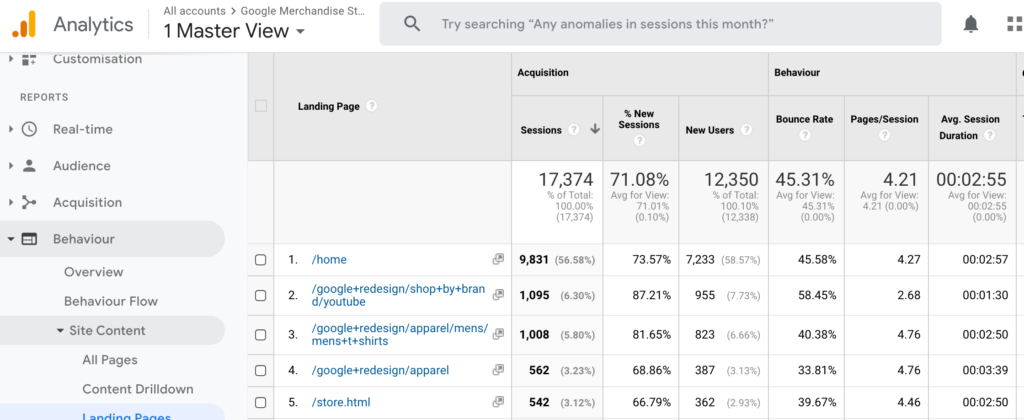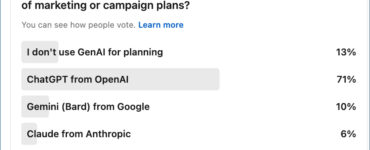The bounce rate can be defined as the proportion of visitors to a website page or site that exit after visiting a single page only, usually expressed as a percentage.
Where is bounce rate reported in Google Analytics?
Bounce rates are reported in GA as behaviour measures alongside pages per session and dwell time (average session duration. Reports include:
- Individual landing pages (Content reports)
- Grouped content in the Content drilldown or content groups (Content reports)
- Different media channels (Acquisition reports)
- Benchmarking reports (useful for comparing to competitors)
This example from the Google Demo Account shows how bounce rate analysis can be used to identify pages that are less effective in engaging audiences. Here the second most popular landing page has a significantly higher bounce rate and this is worth investigating.

Note that if an Event is set up to fire in Google Analytics, for example, when an interactive tool is used, then this visit is not counted as a bank.
How can bounce rate be used?
Bounce rate is best used to compare different landing or entry pages for how well they engage their audience. Pages with high bounce rates and high traffic should be reviewed to see how they can better engage their audience.
Typical average bounce rates
I’m often asked what is a good or bad bounce rate. This table shows typical values.
| KPI range – bounce rate | Typical situation | Recommendations |
|---|---|---|
| 0-30% | Existing customers or those who know the brand, e.g. brand searches, home page visits. | Optimisation not worthwhile except for high-traffic pages like the home page. |
| 30-50% | Effective landing pages | Use AB testing to improve further for high traffic pages |
| 50-80% | Underperforming landing page | Test to improve performance We find 70% is a typical for a blog because visitors are looking for specific information |
| 80-100% | A landing page e.g. Google Ads or display ad campaign that fails to engage | It’s unlikely that +IVE ROI occurs at this level or that small changes can improve, so suspend the activity |






